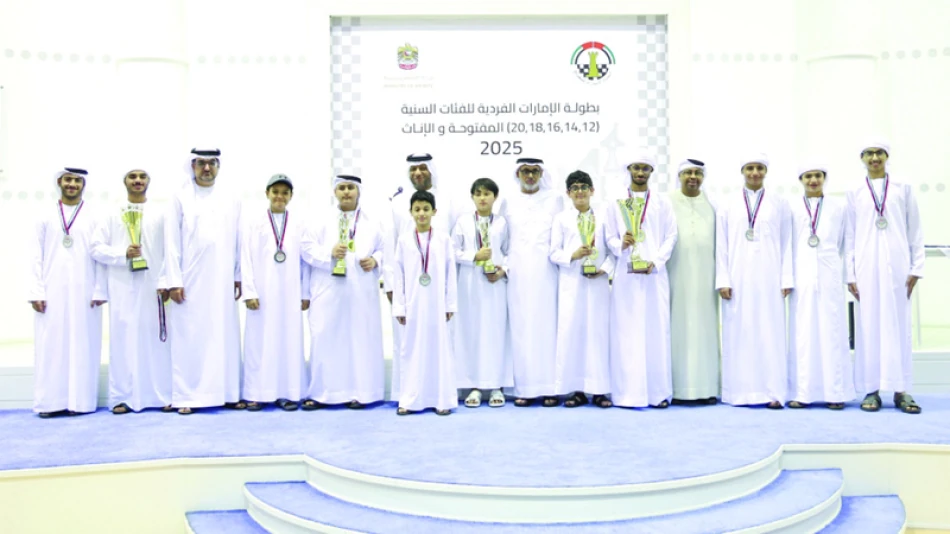
Sharjah Leads UAE's Age-Group Chess Championship
Sharjah Chess Club Dominates UAE Youth Championship in Commanding Display
Sharjah Chess Club has emerged as the powerhouse of Emirati youth chess, claiming the top position at the UAE Individual Championship for open and female categories across multiple age groups. The tournament, which attracted 160 players competing in under-12, 14, 16, 18, and 20 age divisions, showcased the growing depth of chess talent across the Emirates and highlighted Sharjah's investment in developing strategic thinking sports.
Medal Haul Reveals Competitive Balance Across Emirates
Sharjah's dominance was built on consistency rather than overwhelming superiority, securing three gold medals matched by three silver medals. This balanced performance suggests a well-rounded development program that produces champions across different age categories and gender divisions.
The competition revealed a healthy distribution of chess excellence across the UAE's major cities. Abu Dhabi Chess and Mind Games Club secured second place with an impressive medal count of two golds, one silver, and six bronze medals—indicating strong depth in their junior programs. Al Ain Chess and Mind Games Club claimed third with two golds and two bronze medals, demonstrating the emirate's growing chess infrastructure.
Specialized Programs Show Results
Particularly noteworthy was the fourth-place finish of Sharjah's specialized Chess and Culture Club for Girls, which earned two gold medals and one bronze. This performance underscores the UAE's targeted approach to developing female chess talent—a strategy that mirrors successful programs in countries like Georgia and China, where dedicated women's chess initiatives have produced world-class players.
Strategic Investment in Mind Sports Paying Dividends
The tournament's success reflects the UAE's broader strategy of diversifying its sporting excellence beyond traditional areas. Chess development programs have gained momentum across the Emirates, with each major city establishing dedicated chess clubs that combine competitive training with cultural education.
Dubai Chess Club's performance—one gold and four silver medals—despite hosting the tournament, suggests that home advantage matters less in chess than in physical sports, while also indicating that Dubai's players are consistently reaching finals even when not claiming top honors.
Regional Chess Development Model
The UAE's approach mirrors successful chess development models seen in other Gulf states, particularly Qatar's investment in chess education and Saudi Arabia's recent push to integrate chess into school curricula. By establishing city-specific clubs with specialized programs, the Emirates are creating a competitive ecosystem that drives improvement across all levels.
Fujairah Chess Club's solid showing with two silver and one bronze medal demonstrates that even smaller emirates can compete effectively when proper infrastructure and coaching are in place, suggesting the UAE's chess development strategy is achieving its goal of nationwide talent cultivation rather than concentration in major urban centers.
Most Viewed News

 Sara Khaled
Sara Khaled






